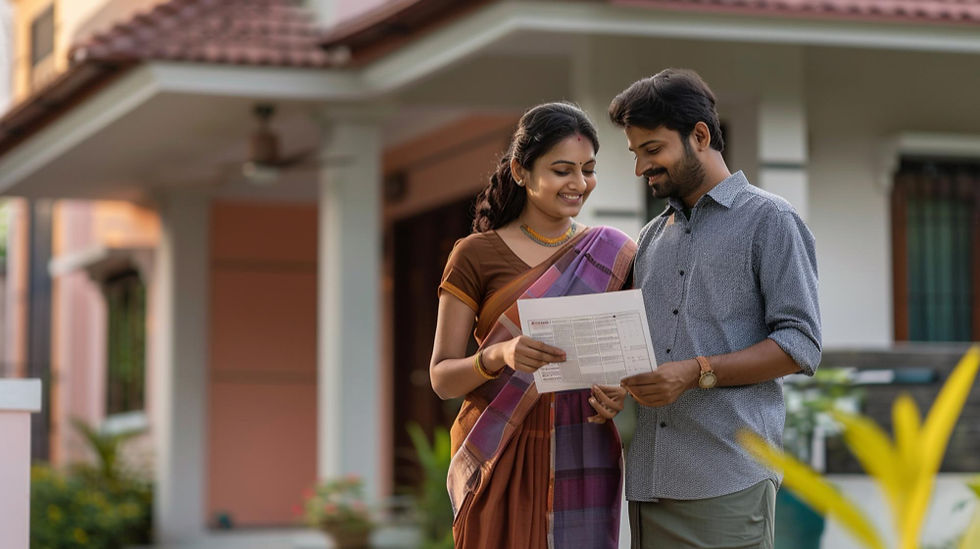Green Escapes: How to Design Your Perfect Weekend Farmhouse Retreat (RDL Greens Edition)
- Aakruti Prakash

- Oct 7, 2025
- 2 min read

For urban professionals in Bengaluru, the concept of a "weekend farmhouse retreat" is shifting. It’s no longer about mere luxury; it’s about intentional disconnection, sustainable living, and finding a restorative escape from city life.
RDL Vista’s communities, like the vision for RDL Greens, provide the perfect foundation: legally clear plots set within a thriving eco-friendly community living environment near the Chikkaballapur corridor. Here is your guide to designing a sustainable retreat that truly recharges you.
1. Embrace Local and Sustainable Building Materials
The most sustainable farmhouse is one that blends seamlessly into its environment and minimizes its carbon footprint. Forget steel and glass; think natural textures.
Material Choice | Why It's Sustainable | Lifestyle Benefit |
Rammed Earth/Mud Blocks | Excellent natural insulation; reduces reliance on AC/heating. | Creates a rustic, cool, and quiet interior ambiance. |
Laterite/Local Stone | Plentiful in the Karnataka region; minimizes transportation costs. | Provides a robust, naturally beautiful, maintenance-free exterior look. |
Reclaimed Wood (for finishes) | Reduces deforestation and waste. | Adds unique character and a cozy, lived-in feel to ceilings, floors, and doors. |
2. Design for the Retreat Experience
The goal of your design should be to maximize natural light and air while blurring the lines between indoor and outdoor living.
Verandas and Patios: The most-used space in a farmhouse is the veranda. Design deep, shaded patios overlooking your crops. This becomes your primary living area.
Open Floor Plans: Keep the main living, dining, and kitchen areas open to encourage communal interaction and airflow.
Large Windows and Jali Work: Use wide windows to capture scenic views, especially of Nandi Hills. Incorporate traditional jali (lattice) work for passive ventilation and security without obstructing the breeze.
3. Integrated Sustainability: Let the Farm Work for You
A sustainable farmhouse isn't just built sustainably; it operates sustainably. This is where eco-friendly community living excels:
Water Management: Incorporate Rainwater Harvesting systems (often a mandatory feature in RDL layouts) to ensure year-round water supply for non-potable uses.
Energy Independence: Install Solar Panels on the roof. Your weekend usage is low, making your retreat largely self-sufficient and dramatically reducing electricity bills.
Waste-to-Compost: Designate an outdoor corner for kitchen waste composting. This compost feeds your garden, completing the sustainable loop and eliminating waste.
4. Maximizing Your RDL Greens Plot
With a plot in an RDL Vista community, you own land that is already designated for a greener lifestyle.
The 10% Construction Rule: Farm plots typically allow for a certain percentage of construction (usually around 10% of the total area). Use this space wisely for a well-designed cottage while preserving the rest for managed farming or landscaping.
Food Forest Integration: Work with the farm management team to integrate fruit trees, herbs, and organic vegetable patches directly adjacent to your cottage, giving you true farm-to-table access every weekend.
Your farmhouse retreat shouldn’t be a liability; it should be a sanctuary that enhances your health, contributes to the environment, and appreciates in value—a perfect model of modern, mindful investment.




Comments